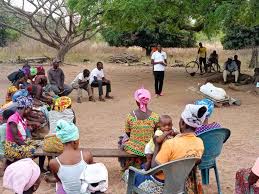Women in Northern Ghanaian communities serve as the backbone of society. Their contributions are critical to the social, economic, and cultural development of these regions. In rural areas, they often manage households, support families, and drive local economies. They are not just caregivers; they are leaders, educators, and entrepreneurs.
As custodians of tradition, women play a vital role in preserving cultural heritage. Their influence extends into various aspects of community life. Furthermore, they actively participate in decision-making processes, advocating for the rights and needs of their communities.
Understanding the roles of women in these settings is essential. It highlights their resilience and adaptability. This article will delve into the top 10 roles of women in Northern Ghanaian communities. By examining these contributions, we can appreciate their impact and recognize the importance of empowering them for future growth and stability.
Roles of Women in Northern Ghanaian Communities
1. Economic Contributors
Women significantly contribute to the local economy. They engage in various activities such as farming, trading, and crafts. Their efforts not only support their families but also boost the community’s overall economic stability.
2. Caregivers
They often assume the role of primary caregivers in their households. They nurture children, the elderly, and the sick, ensuring that families function smoothly. Their care is essential for maintaining the health and well-being of the community.

3. Educators
In many cases, women serve as informal educators. They pass down knowledge and traditions to younger generations, teaching essential skills such as farming techniques, cooking, and cultural practices.
4. Community Leaders
Women increasingly take on leadership roles within their communities. They participate in decision-making processes and advocate for women’s rights, health, and education, enhancing their influence in local governance.
5. Environmental Stewards
Women are often at the forefront of environmental conservation. They engage in sustainable farming practices and resource management, ensuring the preservation of natural resources for future generations.
6. Cultural Preservers
They play a crucial role in preserving cultural heritage. They are custodians of traditions, rituals, and storytelling, passing them down through generations and keeping the community’s identity alive.
7. Health Advocates
They are vital in promoting health awareness within their communities. They educate others about nutrition, hygiene, and maternal health, contributing to improved health outcomes for their families.

8. Social Network Builders
Women often act as the glue that holds communities together. They create and maintain social networks, fostering cooperation and support among families and neighbours.
9. Entrepreneurs
They increasingly engage in entrepreneurship, establishing businesses that provide goods and services. This not only boosts their economic independence but also creates job opportunities for others in the community.
10. Advocates for Change
They are powerful advocates for social change. They champion issues such as gender equality, education, and healthcare access, working towards a more equitable society.
READ ALSO: 3 Major Impacts of Weather Conditions on Road Safety
8 Important Economic Impact of Cash Crops in Northern Region





